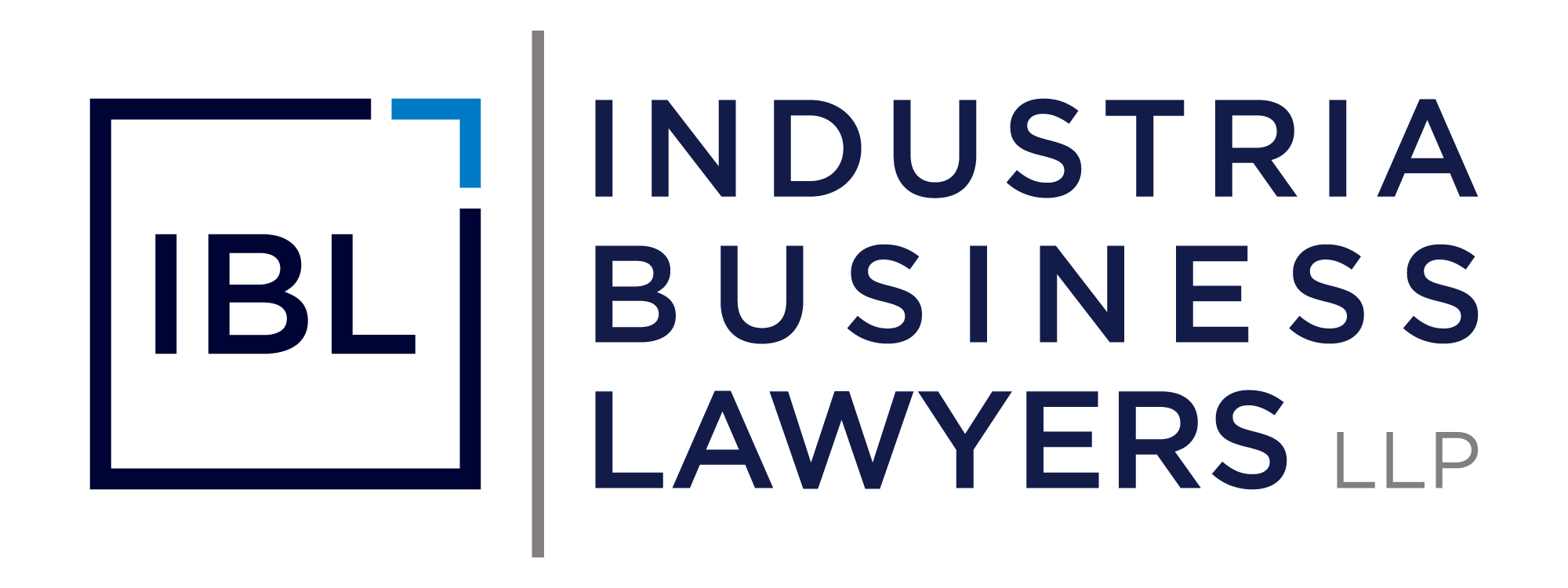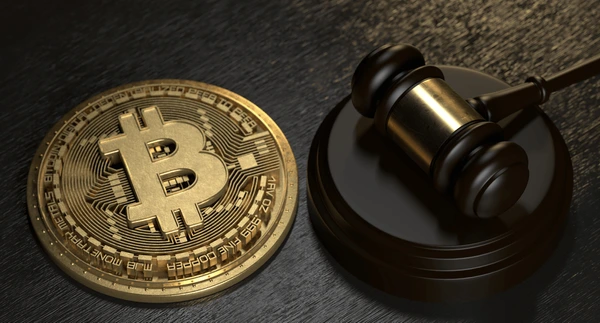Written by: Aaron Krowne
Introduction
The Securities and Exchange Commission (SEC) has long been a central figure in regulating financial markets in the USA. However, its stance on cryptocurrency has often drawn criticism from industry players. One such instance is the issuance of Staff Accounting Bulletin No. 121 (SAB 121) in March 2022, a controversial guidance that fundamentally altered how SEC-regulated companies holding crypto assets on behalf of customers should account for them. Recently, however, the SEC seems to be reconsidering its stance, suggesting a potential shift in its regulatory approach. In this article, we will examine what SAB 121 originally entailed, who it impacted, situations where it doesn’t apply, the softening of SEC’s instance, and how entities can navigate this changing regulatory landscape.
Key Takeaways
- SAB 121 Overview: Issued by the SEC in 2022, SAB 121 requires companies holding cryptocurrency for customers to recognize both an asset and a corresponding liability on their balance sheets, accounting for the fair market value of the crypto-assets.
- Who It Affects: The guidance primarily impacts centralized exchanges, brokers, custodians, and other financial institutions that safeguard crypto-assets on behalf of customers. All of these entities must be SEC-regulated for the guidance to apply (however, conceivably, the SEC could take the view that an entity that should have been regulated by the SEC with respect to certain acts might fall under the guidance).
- Exceptions to SAB 121: Certain entities, such as introducing broker-dealers and bank holding companies, may be exempt from recognizing crypto-assets as liabilities if they meet specific regulatory criteria and obtain relevant legal opinions.
- Evolving SEC Stance: Recent developments indicate the SEC may be softening its stance on SAB 121, offering exemptions in specific cases, and signaling a shift toward more flexible regulations for crypto custody services.
- Legal Guidance Is Critical: Obtaining external legal advice can be instrumental for institutions seeking to characterize liability under SAB 121. This advice (which may include formal legal opinions) may be able to provide legal assurances that assets are sufficiently safeguarded, SAB 121 notwithstanding, and limit associated regulatory burdens.
What Is SAB 121?
The SAB 121 was issued by the SEC to clarify accounting standards for SEC-regulated companies that are involved in safeguarding crypto-assets on behalf of their customers. The guidance requires these entities to recognize both an asset and a corresponding liability on their balance sheets, reflecting the obligation to safeguard the assets, which must be accounted for at fair market value (FMV).
This accounting treatment differs from traditional financial instruments, sparking outrage in the crypto industry when it was introduced. Unlike banks or other financial institutions, SEC-regulated crypto-asset custodians and brokers are arguably now compelled to account for customer custodial assets as liabilities, introducing additional complexities and risks in financial reporting.
For example, under the guidance, if the company holds $1 million worth of Bitcoin for its customers, it has to list $1 million as an asset and $1 million as a liability. If the value of the Bitcoin changes, say dropping to $900,000, both the asset and the liability need to be adjusted. This is far stricter than the comparable reserving rules for, e.g., banks.
Who Does SAB 121 Apply To?
SAB 121 applies to entities that file reports under the Securities Exchange Act of 1934 (Exchange Act) and those that have submitted or filed a registration statement under the Securities Act of 1933 or the Exchange Act. This includes companies that have filed for public offerings or have ongoing reporting obligations with the SEC. Additionally, it covers entities that file offering statements or amendments under Regulation A, a framework for small and medium-sized companies to raise capital through public offerings, as well as those subject to ongoing periodic and current reporting requirements of Regulation A.
SAB 121 also extends to private companies involved in mergers or acquisitions with shell companies, including Special Purpose Acquisition Companies (SPACs), where their financial statements are included in SEC filings. These entities, if they hold crypto-assets for customers (such as centralized exchanges or banks), must now report those assets as liabilities on their balance sheets. They are also required to disclose the nature and amount of crypto-assets held, providing a clear breakdown of each significant asset and any risks tied to concentration in crypto-related activities.
SAB 121 primarily impacts entities like centralized cryptocurrency exchanges, custodians, or banks that hold crypto-assets on behalf of their customers.
Industry Backlash to SAB 121
The industry, including the entities and regulators, criticized the SEC for SAB 121 for a number of reasons, including:
- Increased Capital Reserve Requirements: Entities, particularly banks, argued that reporting custodied crypto assets as liabilities could trigger increased capital reserve requirements under regulations that the SEC does not administer. This would force firms to hold more capital, limiting their ability to engage in income-producing activities like lending. As a result, offering crypto custody services could become economically infeasible.
- Impact on Crypto Custody Services: SAB 121 might disproportionately affect banks and other financial institutions with experience in offering custody services, potentially forcing them to abandon crypto custody plans. This would limit options for consumers seeking safe custody of their crypto assets and prevent some of the most experienced institutions from providing these services.
- Risk of Crypto Assets Being Exposed in Bankruptcy: The on-balance sheet treatment of crypto assets could expose customers to creditor claims if a custodian firm goes bankrupt. In contrast, off-balance sheet treatment, typically used for other assets, ensures that customer assets remain safe from creditors.
- Economic Infeasibility: By imposing additional liabilities on entities holding crypto assets, SAB 121 could make crypto custody services financially unsustainable for banks and other institutions, ultimately harming consumers by reducing their options.
GAO and Congressional Objections to SAB 121
Following significant backlash from the industry, the Government Accountability Office (GAO) intervened, arguing that SAB 121 constituted a rule under the Administrative Procedure Act (APA), and thus should have been subject to Congressional oversight under the Congressional Review Act (CRA). The CRA, enacted in 1996, requires all federal agencies to submit a report on each new rule to Congress and the Comptroller General before it can take effect. The CRA allows Congress to review and potentially disapprove agency rules within 60 days using special legislative procedures. Under the APA, a rule is broadly defined as an agency statement designed to implement or interpret law or policy with future effect. GAO argued that SAB 121 met the definition of a rule under the APA and was not exempt from CRA’s reporting requirements.
Following GAO’s intervention, Congress acted through H.J. Res.109, a bipartisan resolution to disapprove SAB 121 under the CRA. The resolution passed both the House and the Senate, marking the first crypto-specific legislation to achieve such progress in Congress. However, President Biden vetoed the resolution. stating that the “resolution would inappropriately constrain the SEC’s ability to set forth appropriate guardrails and address future issues.” SAB 121 remains in effect, as the House did not reach the veto-proof majority (two-thirds) required to override the President’s veto.
When SAB 121 Doesn’t Apply
Nevertheless, the SEC seemed to recognize the backlash against SAB 121 as strictly-written, and has apparently softened its stance since. For instance, in certain situations, as outlined in a speech by Paul Munter, the SEC’s Chief Accountant, at the 2024 AICPA & CIMA Conference on Banks & Savings Institutions, the SEC will provide a non-object (similar to a no-action). While SAB 121 generally requires entities to recognize a liability for safeguarding crypto-assets held for others, the SEC has allowed no-action scenarios in specific cases where entities met particular criteria. Here are some detailed examples:
Bank Holding Companies Safeguarding Crypto-Assets
In one example, a bank holding company safeguarding crypto-assets for institutional clients was not required to recognize a liability under SAB 121. The SEC staff did not object, based on the following criteria:
- Regulatory Approval: The bank obtained approval from both state and federal regulators, confirming the governance and risk management practices for its crypto-safeguarding activities.
- Operational Controls: Comprehensive controls were in place to mitigate risks associated with holding cryptographic private keys for institutional customers.
- Bankruptcy-Remote Structure: The crypto-assets were held in bankruptcy-remote wallets, meaning they were legally protected from being included in the bank’s estate in the event of insolvency.
- Limited Custodial Role: The bank’s activities were limited to safeguarding and transferring crypto-assets based on customer instructions, without any rehypothecation or use of those assets by the bank.
- Legal Opinion: A legal opinion from an outside counsel supported the conclusion that the crypto-assets would not be part of the bank’s receivership estate in case of insolvency.
Introducing Broker-Dealers
In another scenario, registered introducing broker-dealers facilitating crypto transactions for customers were also exempt from recognizing a liability under SAB 121. This exemption was granted under the following conditions:
- No Control of Cryptographic Keys: The broker-dealer, or its agents, had no possession or control of the private keys required to transfer the crypto-assets.
- Third-Party Custody: The crypto-assets were held by a third party acting as the customer’s agent, not the broker-dealer’s.
- Clear Disclosures: The broker-dealer clearly communicated to customers that safeguarding services were provided by the third party, and not by the broker-dealer itself.
- Direct Customer-Third Party Relationship: Customers had a direct contractual relationship with the third party for safeguarding, and could interact with the third party independently of the broker-dealer.
- Legal Opinion: A legal opinion from an outside counsel confirmed that the third party acted as an agent of the customer, and the broker-dealer had no legal obligation to compensate for any losses from the third party’s handling of crypto-assets.
In both of these examples, the SEC’s no-action stance was based on specific facts, legal opinions, and representations provided by the entities involved. These criteria reflect how the SEC is applying a more flexible approach to SAB 121, depending on the particular risk mitigation and legal structures in place.
Further Walk-Back
The Bank of New York Mellon Corporation (BNY Mellon) has received a “no-objection” from the SEC to safeguard digital assets like bitcoin and ether without classifying them as balance-sheet liabilities. This approval depends on BNY Mellon’s use of individual crypto wallets, ensuring that customer assets are protected and kept separate from the bank’s assets in the event of insolvency. The move also signals a softening of the SEC’s initial stance under SAB 121.
SEC Chair Gary Gensler noted in an interview that while the consultation was focused on two specific crypto assets, the custody model could apply to a wide range of digital assets. He emphasized that the SEC’s decision relates to the custody structure rather than the nature of the assets, potentially allowing other banks to adopt similar crypto custody models and broaden their digital asset offerings.
Conclusion
In conclusion, the SEC’s recent actions reflect a notable shift from its initial hardline approach under SAB 121, responding to industry concerns over the burdensome accounting treatment of crypto-assets. By granting exemptions and allowing for more flexible interpretations, particularly for institutions like introducing broker-dealers and banks with robust safeguards, the SEC has demonstrated a willingness to adapt its regulations to the unique challenges of the crypto space. This evolving stance signals that the regulatory landscape for digital assets may continue to soften as both the industry and regulators strive to find a balanced approach.
At Industria Business Lawyers LLP (IBL), we specialize in helping broker-dealers and other financial institutions navigate the challenges posed by new regulations such as SAB 121. Our experienced legal team can provide the necessary counsel to secure legal opinions and ensure that your firm remains compliant while minimizing risk exposure. Reach out to us today for guidance on how to protect your business and clients in an evolving regulatory landscape.
FAQs
What is SAB 121?
SAB 121 is a guidance issued by the SEC in March 2022 that requires entities holding crypto-assets for customers to recognize both a liability and a corresponding asset on their balance sheets. This is meant to reflect the obligation to safeguard crypto-assets.
Who is affected by SAB 121?
SAB 121 primarily affects institutions involved in safeguarding crypto-assets, such as crypto exchanges, custodians, and broker-dealers, particularly those acting on behalf of customers.
Why has SAB 121 caused controversy?
SAB 121 has sparked backlash because it requires companies to list customer crypto-assets as liabilities, which could lead to increased capital requirements and make crypto custody services more expensive or economically unfeasible. Some argue that it exposes customer assets to additional risks, such as being claimed by creditors if a company goes bankrupt.
How has the SEC responded to industry concerns about SAB 121?
In response to industry concerns, the SEC has softened its stance in certain cases. For example, it has allowed exceptions for some banks and broker-dealers, where they do not have to list crypto-assets as liabilities under specific conditions, such as holding assets in bankruptcy-remote structures or using third-party custodians.
Why are legal opinions important under SAB 121?
Legal opinions are crucial because they provide clarity on legal protections for crypto-assets. For instance, they confirm that customer crypto-assets are protected in case of the company’s bankruptcy or clarify that broker-dealers are not responsible for third-party custodianship. These legal opinions help companies meet SEC requirements and reduce risks.
[1] SEC, Staff Accounting Bulletin No. 121, accessible at https://www.sec.gov/regulation/staff-interpretations/accounting-bulletins/old/staff-accounting-bulletin-121
[2] GAO, Securities and Exchange Commission—Applicability of the Congressional Review Act to Staff Accounting Bulletin No. 121, Oct 31, 2023, accessible at https://www.gao.gov/products/b-334540
[3] Congress, H.J.Res.109 – Providing for congressional disapproval under chapter 8 of title 5, US Code, of the rule submitted by the SEC relating to “Staff Accounting Bulletin No. 121”, accessible at https://www.congress.gov/bill/118th-congress/house-joint-resolution/109
[4] The White House, A Message to the House of Representatives on the President’s Veto of H.J.Res. 109, accessible at https://www.whitehouse.gov/briefing-room/presidential-actions/2024/05/31/a-message-to-the-house-of-representatives-on-the-presidents-veto-of-h-j-res-109/
[5]SEC, Speech by Paul Munter, Chief Accountant, Remarks before the 2024 AICPA & CIMA Conference on Banks & Savings Institutions: Accounting for Crypto-Asset Safeguarding Obligations—A Facts-Based Analysis, accessible at https://www.sec.gov/newsroom/speeches-statements/munter-speech-safeguarding-crypto-assets-09-09-24
[6] Bloomberg, BNY Approved by SEC for Crypto Custody Beyond ETFs, Gensler Says, accessible at https://www.bloomberg.com/news/articles/2024-09-26/bny-structure-approved-by-sec-for-crypto-custody-beyond-etfs-gensler-says?embedded-checkout=true


